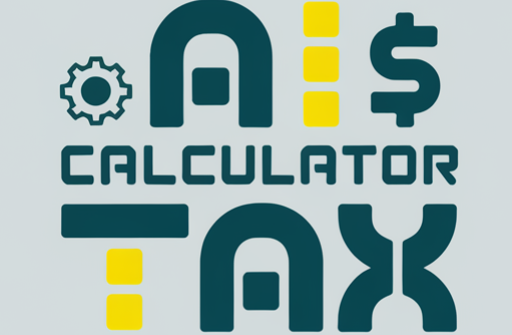Introduction
Artificial intelligence (AI) is transforming tax compliance and reporting, helping businesses and individuals stay compliant with ever-evolving tax regulations. With the complexity of global tax laws and increasing scrutiny from tax authorities like the IRS, AI-driven solutions offer automation, accuracy, and real-time updates to minimize compliance risks. This article explores how AI is revolutionizing tax compliance across different domains.
AI for Ensuring IRS Compliance
The Internal Revenue Service (IRS) enforces strict tax regulations, making compliance essential for businesses and individuals. AI helps by:
- Automating tax form preparation and verification
- Analyzing financial transactions to detect anomalies
- Flagging potential discrepancies before IRS audits
- Enhancing fraud detection using machine learning models
AI for International Tax Compliance
Cross-border taxation presents complex challenges, with different jurisdictions imposing unique tax laws. AI simplifies international tax compliance by:
- Tracking country-specific tax regulations in real time
- Automating transfer pricing analysis to ensure regulatory adherence
- Identifying risks in cross-border transactions
- Assisting multinational corporations in managing VAT, GST, and import/export duties
AI for Real-Time Tax Code Updates
Tax codes are frequently updated, making it difficult for businesses to stay compliant. AI-powered systems help by:
- Scanning government websites and regulatory databases for tax law changes
- Sending real-time alerts on tax code amendments
- Automatically updating tax calculations and filing systems
- Reducing manual research efforts for tax professionals
AI in Corporate Tax Compliance
Large corporations face complex tax obligations, from deductions to multi-state tax filings. AI enhances corporate tax compliance by:
- Streamlining tax return preparation for enterprises
- Automating deductions and credit calculations
- Identifying potential tax savings based on financial data
- Improving risk assessment to prevent non-compliance penalties
AI for Preventing Tax Evasion
Tax authorities use AI to detect fraudulent activities and prevent tax evasion. AI aids in:
- Identifying suspicious financial transactions
- Monitoring high-risk entities and individuals
- Cross-referencing tax filings with external financial data
- Enhancing predictive analytics to detect potential fraud before it occurs
AI and Automated Tax Reporting
Manual tax reporting is time-consuming and prone to errors. AI-driven tax reporting systems offer:
- Automated generation of financial statements and tax reports
- Integration with accounting software for seamless data extraction
- AI-powered error detection to ensure accurate filings
- Compliance validation before report submissions
AI for Reducing Tax Audit Risks
Tax audits can be costly and disruptive. AI minimizes audit risks by:
- Identifying inconsistencies in tax filings before submission
- Predicting audit likelihood based on historical tax data
- Ensuring documentation meets compliance standards
- Providing recommendations to improve tax record-keeping
AI and FATCA Compliance
The Foreign Account Tax Compliance Act (FATCA) requires financial institutions to report foreign assets of U.S. taxpayers. AI streamlines FATCA compliance by:
- Automating due diligence for foreign financial accounts
- Monitoring cross-border financial transactions for compliance risks
- Ensuring timely reporting of foreign income and assets
- Reducing the risk of non-compliance penalties
AI for Digital Tax Filings
AI enhances e-filing processes for individuals and businesses by:
- Auto-filling tax forms using historical data
- Detecting errors and suggesting corrections before submission
- Offering personalized tax-saving recommendations
- Ensuring secure and encrypted digital tax filings
AI for Non-Profit Tax Compliance
Non-profit organizations must adhere to specific tax regulations to maintain their tax-exempt status. AI supports non-profit tax compliance by:
- Automating Form 990 preparation and submission
- Ensuring compliance with IRS exemption requirements
- Identifying potential tax benefits and deductions
- Monitoring donation and grant reporting accuracy
Frequently Asked Questions (FAQs)
How does AI help in tax compliance?
AI automates tax calculations, monitors tax law changes, detects fraud, and ensures accurate filings to reduce compliance risks.
Can AI prevent IRS audits?
While AI cannot prevent audits, it helps minimize risks by ensuring accurate filings and detecting inconsistencies before submission.
Is AI tax software reliable?
Yes, AI-powered tax software uses machine learning and real-time updates to provide highly accurate tax calculations and compliance monitoring.
How does AI handle international tax compliance?
AI tracks global tax laws, automates transfer pricing analysis, and helps businesses manage cross-border tax obligations efficiently.
Can AI detect tax fraud?
Yes, AI analyzes financial transactions, flags suspicious activities, and cross-references tax filings with financial data to identify fraud.
Does AI replace tax professionals?
AI enhances tax professionals’ efficiency by automating tasks, but human expertise is still essential for complex tax strategies and decision-making.
What industries benefit most from AI in tax compliance?
Multinational corporations, e-commerce businesses, financial institutions, and non-profits benefit significantly from AI-driven tax compliance solutions.
Conclusion
AI is revolutionizing tax compliance by automating processes, ensuring accuracy, and reducing compliance risks. From IRS and international tax compliance to automated reporting and fraud prevention, AI-driven solutions help businesses and individuals navigate complex tax regulations more efficiently. As AI technology advances, its role in tax compliance will continue to expand, providing even greater accuracy and efficiency.

